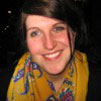
Katie Aston is Associate Lecturer in the Anthropology of Religion and Ethnographies of South Asia at Goldsmiths University. She recently submitted her PhD on the topic of nonreligious and secular material cultures and ritual in the UK. Aston is also Postgraduate and Early Careers Liaison Officer for the Sociology of Religion (Socrel) research group, as part of the British Sociological Association in the UK (BSA). She is also Editor for the Nonreligion and Secularities Research Network [NSRN] blog. Her research interests span material culture, art, cartoons, secularism, atheism, humanism and ritual practices, within the disciplines of Sociology, Cultural Studies and Anthropology.
"The Unverifiable Truth-claim", recorded at BASR 2016, hosted by David Robertson, and featuring Christopher Cotter, Katie Aston, Jonathan Tuckett, and Krittika Bhattacharjee! Plus a special appearance by RSP Managing Editor, Thomas Coleman!
In this podcast, Anna Strhan talks to Katie Aston about her research among evangelical Christians, exploring their search for coherence in the contemporary city. How do the members of conservative Anglican congregations negotiate their place in a secular multicultural society, ...
Many of my participants felt that familiarity with Christianity permitted them to be critical in a way that they could not with other religious traditions. This podcast coincides with Linda Woodhead’s recent Croall Lectures, aimed at interrogating the question: Is Britain still a Christian country? Drawing on her own qualitative research and recent surveys in the UK,
What exactly is the mode of existence of social relationships? Are they substantial? natural? or formally abstract? The study of space offers an answer according to which the social relations of production have a social existence to the extent that they have a spatial existence; they project themselves into a space, becoming inscribed there, and in the process producing that space itself. Failing this,...
This discussion brings together a number of aspiring academics to reflect on some of the issues brought up in a recent podcast in a friendly and hilarious manner. The question cuts to the core of what academics who study religion are doing… are they taking care of religion? Are they antagonising it? What should they be doing? And judging by the various long tangents through which discussion meanders, the question certainly sparked our interest.
In another roundtable gathering, conversation ranges from the strengths and weaknesses of such data, whether there is more to the social sciences than quantitative methods, and the place of the social sciences within a multi-disciplinary Religious Studies field. Can we trust social sciences when we study religion? Is a social scientific approach the future of religious studies?
"What my own position may speak to is the categorisation of "religion"; when talked of in isolation, "religion" remains something fixed and visible. But in fact it intersects heavily across cultural domains, and having been in this ‘piggy in the middle’ situation, it is interesting to note the Christian heritage which is shared both by my family, myself and my non-religious participants: we are all insiders to a point."
This work is licensed under a Creative Commons Attribution- NonCommercial- NoDerivs 3.0 Unported License.
The views expressed in podcasts, features and responses are the views of the individual contributors, and do not necessarily reflect the views of The Religious Studies Project or our sponsors. The Religious Studies Project is produced by the Religious Studies Project Association (SCIO), a Scottish Charitable Incorporated Organisation (charity number SC047750).